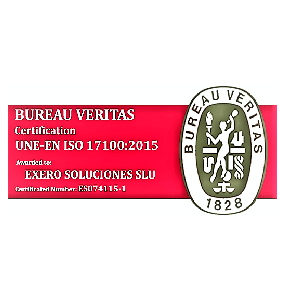Bilingual & Translator Debate: What's the Difference?
Being bilingual is a wonderful thing. Studies show that it has numerous advantages. Everything from increasing certain cognitive functions to giving you a leg up in the professional world. Not to mention it gave us the fantastic Spanglish!
Although we’re a bit behind on learning languages in places like the U.S. and the U.K., the number of bilingual individuals is gradually increasing. Being language lovers, we think this is great! However, our friends, relatives, and acquaintances often downplay the importance of our job with a simple phrase like: “My cousin speaks Spanish, she can translate it for me.” If we’re talking about Shakira’s latest tweet, more power to you. But what about that bank loan contract? Or that medical report on tumor markers?
In response, we’ve decided to write this article and share our thoughts on the matter: being bilingual does not make you a translator. Today we’re going to talk about the skills and abilities that separate a translator from a bilingual person. Furthermore, we elaborate on the potential risk you take when you don’t hire a professional.
Translation Branches
So, you speak Italian well but … how well do you know the French Civil Code? Or the compounds in this German medicine? Or how about the Chinese expressions and idioms in this pamphlet? Because personally, I don’t know any that well.
But no worries! Luckily, I know people that DO have extensive knowledge of these subjects. People that specialize in specific branches of translation, that continually research the subject matter, and have years of experience under their belt. These people have full command of the technical vocabulary. Plus, they wholly understand the meaning of what they translate and how to perfectly render it into the target language.
Hiring a professional in the subject matter that you want translated guarantees that the translation meets quality standards. That way we don’t have any unpleasant surprises when reviewing the finished product … or even worse, when the target audience sees it. You don’t want to become the laughing stock of the internet, do you?

But it goes beyond your reputation as an individual or a company. Aside from the final text’s quality, sometimes hiring someone who is merely bilingual isn’t even possible for legal reasons. If you’d like to know why, see our article on sworn translation HERE.
Beyond the Command of Languages
Sometimes, the problems presented by a translation are easy to fix since there are clear ways of expressing the text’s concepts in the target language. Other times, one little word in the middle of the sentence becomes an almost insurmountable and practically untranslatable barrier capable of driving a professional insane.
Let’s say you have to translate a text full of expressions deeply rooted in local culture (a comic littered with the teenage vernacular of southern Spain). What do we do now? This isn’t something you pick up during your study abroad in Mexico. Knowledge of a language is important, but it’s just a piece of it. Since language is intrinsically linked to culture, cultural knowledge is paramount. Likewise, applying that knowledge to resolve complex semantic issues is a fundamental skill that requires years of practice. Therefore, a bilingual person without professional experience is not likely to give you the results you’re looking for.
Translations Tools
Is there life out there beyond Google Translate (by the way, we use it more for a good laugh than a serious tool)? As professional translators, we use ever-evolving technology that streamlines certain aspects of our job and enables us to provide a higher quality service.
For the previous generation of translators, dictionaries and glossaries were the norm and almost the only option. Nowadays, however, we use a wide range of programs: for reference, assisted translation, HR management, storing memories and glossaries, etc. Moreover, everyone has their preferred tools. Many of these are rather complex and require a certain level of proficiency before they can help us with our work. That means time and dedication.
Networking and Networks
As much as we like to joke about the lonely existence of translators, we actually rely on each other quite a lot. Having contact with a network of other professionals in that field can increase our knowledge and performance as translators. Not only is it useful for asking questions and sharing solutions to vexing translation problems, but we can also expand our capabilities.
For example, at Exero Soluciones we have a network of some 800 freelance collaborators that help us cover practically any language pair or specialty you may need. You don’t have to wrack your brain searching for the right professional every time you need something translated. We can handle any translation. Your brother-in-law can’t do that … or can he?
The Natural Quality is a Quality Guarantee
We regularly encounter people that believe that speaking a second language is enough, but they forget about their mother tongue (i.e. target language). But why? It’s their native language! But let’s not get confused. Mastery of the target language is part and parcel of the translation reading naturally. This is the main reason why most professionals only translate into their native tongue despite having studied another source language for years.
Translation does not mean simply changing the words in one document for their equivalent in another. It means fully understanding the text, including all concepts and nuances, and then accurately rendering them into another language in a way that sounds natural. This is a skill that is learned, practiced, and perfected. It’s a quality guarantee. If this aspect is overlooked, the target audience may have trouble reading, and therefore understanding, the text.
So, who should you call when you need a translation? Don’t think twice. Hire professional translators that will provide you with the quality service you deserve.







Comments